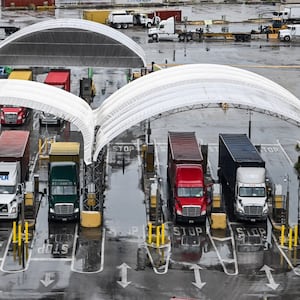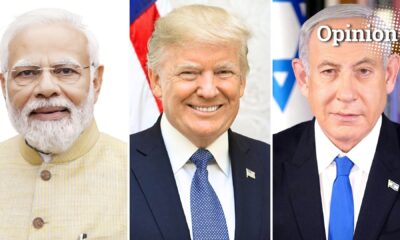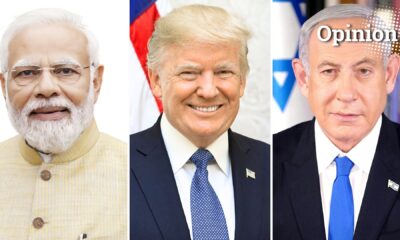Business
Trump Imposes 100% Tariff on Foreign Pharmaceuticals Starting October

US President Donald Trump has announced a significant escalation in trade policy by imposing a 100% tariff on foreign pharmaceuticals starting October 1, 2023. This move, detailed in a post on his Truth Social platform, aims to incentivize pharmaceutical companies to establish manufacturing operations within the United States.
The announcement marks a revival of Trump’s global trade war, reflecting some of the most stringent measures since the implementation of reciprocal tariffs earlier this year. “We will be imposing a 100% Tariff on any branded or patented Pharmaceutical Product, unless a Company IS BUILDING their Pharmaceutical Manufacturing Plant in America,” Trump stated. This decision underscores his administration’s ongoing commitment to reshaping the landscape of American manufacturing and reducing dependency on foreign imports.
Impact on the Pharmaceutical Industry
The tariff affects a broad range of pharmaceutical products, targeting both large corporations and smaller foreign companies. The policy aims to bolster domestic production by making it economically challenging for foreign manufacturers to sell their products in the US market without a physical manufacturing presence. This could prompt companies to reevaluate their supply chains and consider relocating operations to the United States.
In a separate post, Trump also announced a 25% tariff on all heavy trucks manufactured overseas, including those from major international brands such as Volvo and Daimler. This tariff is intended to support US manufacturers like Peterbilt, Kenworth, Freightliner, and Mack Trucks, who compete directly with these foreign brands in the American market.
The implications of these tariffs are far-reaching. They may lead to increased prices for consumers and potential disruptions in the supply chain of essential pharmaceuticals. The healthcare sector, in particular, may face challenges as companies adjust to the new financial landscape.
Reactions and Future Considerations
The reaction from industry stakeholders and political analysts has been mixed. Some view these tariffs as a necessary measure to protect American jobs and stimulate domestic production. Others express concern that such aggressive trade policies could lead to retaliatory measures from foreign governments, potentially escalating tensions and impacting global trade relationships.
As the October deadline approaches, companies will need to prepare for the changes. The administration’s focus on domestic manufacturing aligns with its broader economic strategy but raises questions about the long-term sustainability and impact on international trade partnerships.
In summary, President Trump’s announcement of a 100% tariff on foreign pharmaceuticals signals a significant shift in US trade policy. As the administration seeks to bolster American manufacturing, stakeholders across various industries will need to navigate the evolving landscape in the coming months.
-

 Sports1 month ago
Sports1 month agoNetball New Zealand Stands Down Dame Noeline Taurua for Series
-

 Entertainment1 month ago
Entertainment1 month agoTributes Pour In for Lachlan Rofe, Reality Star, Dead at 47
-

 Sports1 month ago
Sports1 month agoSilver Ferns Legend Laura Langman Criticizes Team’s Attitude
-

 Entertainment1 week ago
Entertainment1 week agoNew ‘Maverick’ Chaser Joins Beat the Chasers Season Finale
-

 Entertainment2 months ago
Entertainment2 months agoKhloe Kardashian Embraces Innovative Stem Cell Therapy in Mexico
-

 Sports2 months ago
Sports2 months agoGaël Monfils Set to Defend ASB Classic Title in January 2026
-

 World3 months ago
World3 months agoPolice Arrest Multiple Individuals During Funeral for Zain Taikato-Fox
-

 Politics2 weeks ago
Politics2 weeks agoNetball NZ Calls for Respect Amid Dame Taurua’s Standoff
-

 Entertainment3 weeks ago
Entertainment3 weeks agoTyson Fury’s Daughter Venezuela Gets Engaged at Birthday Bash
-

 Sports3 weeks ago
Sports3 weeks agoHeather McMahan Steps Down as Ryder Cup Host After Controversy
-

 Entertainment3 weeks ago
Entertainment3 weeks agoTyson Fury’s Daughter Venezuela Gets Engaged at Birthday Bash
-

 World2 weeks ago
World2 weeks agoNew Zealand Firefighters Plan Strike on October 17 Over Pay Disputes



















